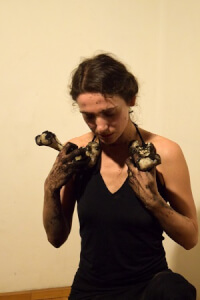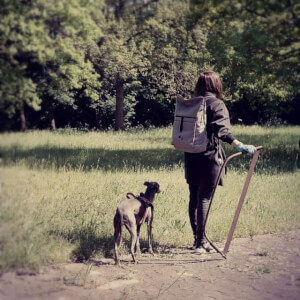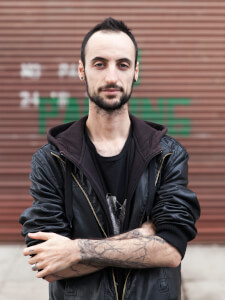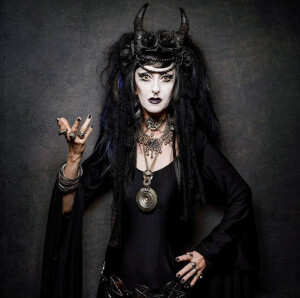Moderator: Jaden J. A. Hastings
The panel discusses a de-centering of the human in the arts grounded in the acknowledgement of a shared vulnerability between beings, be they non-human, robotic or human. This approach is discussed across the Spannungsfeld (area of tension) between embodiment, agency, environment and (bio)technology: Theresa Schubert’s, Margherita Pevere’s and Marco Donnarumma’s art practices are interwoven with Patricia MacCormack’s feminist ahuman philosophy and Galerija Kapelica’s curatorial research.
Our idea of vulnerability draws from feminist and posthuman understandings of the body as an entity embedded in a naturculture continuum and, therefore, inherently open to change. This notion of vulnerability counters that of current neoliberalism that posits human integrity as a dogma. In Schubert’s latest project mEat me, by practicing a biotechnologically enabled cannibalism – executed on and with herself – her body becomes a machine for food production. In doing so, the traditional, religious and cultural integrity of the human body is perforated by a removal of human supremacy over other living beings.
In Donnarumma’s choreographic research for Eingeweide, technical and somatic processes connect human and robotic embodiments in a refractory type of body. This allows a mode of perception that relies in equal measure on human and robotic capacities and weaknesses; corporeality becomes thus a scaffold for the configuration of organic and artificial parts, where each has unique forms of expression. In Pevere’s work Wombs slug and human matter are revealed as life forms possessing a type of agency that demand an artist to negotiate with them, instead of attempting to control them. Through this lens, the act of dealing with and nurturing biological matter helps attune to the agency of other-than-human beings. Any living matter, in fact, is equally bound to death.
The trajectories emerging from the artistic positions open to a discussion of society’s inherent taboos around bodies and difference. The contributing artists invite Kapelica’s curators to chart the evolution of these taboos grounded in the gallery’s work intersecting biopolitics and techno-scientific applications. Expanding the dialogue into philosophical terrain, MacCormack’s contribution draws on her recently published book “The Ahuman Manifesto” to elicit a call to action to further deconstruct identity and anthropocentrism. Both Kapelica’s and MacCormack’s trajectories suggest how we may compose the human differently, thus eroding human privilege and established narratives of power.
The surging social polarization and environmental crisis are the result of a reckless celebration of human dominance over all that lives. Art may harness vulnerability as a gateway to intimate connections between human, robotic and non-human beings. This implies to avow and negotiate with the diverse vulnerabilities of the artwork, of biological matter, of robotic machines, as well as that of the artists themselves. Such a research approach magnifies the ever-changing relation between entities of different kinds and reminds us that all forms of embodiment - and the way we understand them - are inherently unstable.











